Orthopedics
in Columbia Asia Hospital
Lifting your arm or taking a step up the stairs may not sound as spectacular as skydiving or spinning, but when you are facing health complications that affect your daily functions, you realise how precious it is to be able to move at all. Being mobile enriches your quality of life.
Lifting your arm or taking a step up the stairs may not sound as spectacular as skydiving or spinning, but when you are facing health complications that affect your daily functions, you realise how precious it is to be able to move at all. Being mobile enriches your quality of life.
One of the key procedures is total knee replacement, recommended for patients with severe arthritis or damage to the knee joint. Using advanced surgical techniques and technology, our orthopedic surgeons ensure better alignment, smoother recovery, and long-lasting results, all supported by a full-service rehabilitation team to help you regain strength and movement post-surgery.
We also treat a wide range of orthopedic conditions, including muscle pain, back pain, sports injuries, torn tendons, and degenerative joint problems. Our specialists treat both chronic conditions and recent injuries, working closely with rehabilitation experts to create a recovery plan that fits your needs.
In addition to surgical care, our orthopedic services address conditions involving the cartilage, ligaments, and supporting structures around the joints. This includes therapies to preserve joint function, reduce inflammation, and prevent further deterioration helping patients maintain active lifestyles.
From joint preservation and injury recovery to pain management and rehabilitation, orthopedic care at Columbia Asia Hospitals is tailored to suit your lifestyle and specific needs. With the right treatment, you can move better, live freer, and feel more like yourself again. Read More
Our Services & Facilities
The orthopedic surgeons at Columbia Asia Hospitals are highly trained to provide treatment for all major and minor trauma, including sports and spinal surgeries. Our orthopedic team is supported by a comprehensive rehabilitation department to help patients regain their functions.
Services & Facilities
Surgical treatment
Advance Trauma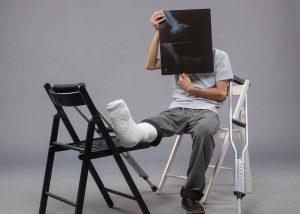
Arthroplasty / Sports Injury
- Rotator cuff tendon tears
- Impingement syndrome
- Recurrent dislocation of shoulders
- Meniscal (cartilage) tears
- Chondromalacia (the wearing off or injury of the cartilage cushion)
- Anterior Cruciate Ligament (ACL) tears which can cause permanent instability in the knee if left untreated
- Meniscal repair
- ACL & PCL repair
- Rotator cuff surgery and many more
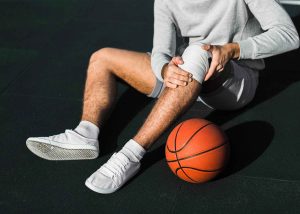
Surgical treatment
Medical and Surgical treatment
- Joint replacement surgeries of the hip, knee and shoulder joints
- Arthroscopic surgeries of various joints
- Ligament injuries and sports injuries
- Limb reconstruction, micro-vascular and hand surgery
- Ilizarov ring fixator treatment
- Correction of deformities of upper and lower limbs

Foot & Ankle Surgery
- Trauma related to the foot & ankle
- Reconstruction of deformity
- Revision surgery
- Treatment of arthritis
- Cartilage damage
- Degenerative and post-traumatic Arthritis
- Diabetic Foot
- Flatfoot
- Forefoot conditions (e.g. Hallux Valgus and lesser toe disorders)
- Fractures
- Gout
- Ligament injuries
- Osteochondral injuries
- Plantar Fasciitis
- Sprains
- Tendonitis
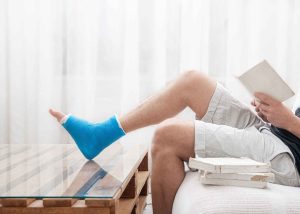
Hand & Microsurgery
- Traumatic injuries including fractures, tendon injuries, digit amputation, nerve lacerations and blood vessel lacerations
- Congenital abnormalities such as webbed fingers and extra digits on the hand
- Sports injuries such as Tennis Elbow and Golfer’s Elbow
- Workplace and overuse injuries, including Carpal Tunnel Syndrome, trigger finger and DeQuervain’s Tenosynovitis
- Arthritis-related deformities such as osteoarthritis and rheumatoid arthritis
- Tumors in the bone & soft tissues
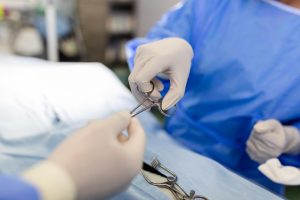
Pediatric Orthopedic
- Limb and spine deformities noted at birth or later in life (clubfoot, scoliosis, limb length differences)
- Gait abnormalities (limping)
- Fractured bones

Spine Surgery
- Bulging or herniated discs
- Vertebral fractures
- Bone spurs
- Spinal stenosis (narrowing of the spinal canal)
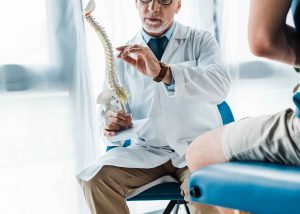
Hospitals
Select a hospital to discover specialists available at your preferred location.
What are the Warning Symptoms?
You have difficulty performing daily functions
You suffer from chronic pain
Your range of motion feels limited
You feel unstable when walking or standing
You have suffered a soft tissue injury that has not improved in two days
Health Packages
Elevate your health with tailored health packages at Columbia Asia Hospital. Take charge of your health journey today.
HLA Policyholders Promo: Influenza Vaccination
RM65
Find Out More12.12 CheckJer Health Package
RM140
Find Out MorePink October 2025
From
RM80
AIA Policyholders Self-pay Benefits
Columbia Asia 30th Anniversary Promotion “Maternity & Baby”
Pink October 2024
From
RM80
Make an Appointment
At Columbia Asia, we are determined to provide our patients with excellence in healthcare services.
Find Answers To Your Questions
Don’t have any questions? Feel free to schedule an appointment with our team.
The average recovery time for a knee replacement surgery is approximately six months, but it can take roughly 12 months to fully return to physically demanding activities.
The first orthopedic appointment typically involves an evaluation of your medical history. You can also expect physical tests and diagnostic examinations to examine your injury or condition. The orthopedic surgeon can assess anything from swelling to your range of motion, to reflexes, or even the condition of your skin. The doctor might order an X-ray, ultrasound or/and Magnetic Resonance Imaging (MRI) scan if further investigation is required.
Yes. Columbia Asia is panel hospital for various insurance companies and third party administrators, both local and international. We provide the means for you to receive medical coverage, giving you peace of mind while you are under our care.
- Submit an Online Form
- Speak to us via Phone Call
- Ligament injuries The knee has four major ligaments and they are all vulnerable to damage.
- Meniscal tears The meniscus slowly degenerates over the years. As a result, older adults can tear the meniscus during normal daily movements.
- Osteoarthritis Suffering a ligament injury, meniscal tear, or traumatic knee injury increases your risk of developing post-traumatic arthritis. This type of osteoarthritis develops at a faster pace because of the joint damage.
- Tendon injuries Running and jumping activities can injure both tendons. You’re more likely to have knee pain when the patellar tendon becomes inflamed.
- Fractures and dislocations When the kneecap is fractured, it often breaks into pieces that move out of place and need reconstructive surgery. A dislocation also requires special care to prevent chronic knee instability.
Yes, we help patients in managing their pain through medications. Our team of physiotherapists also assist patients in managing their pain and getting them back to normal life through rehabilitation

